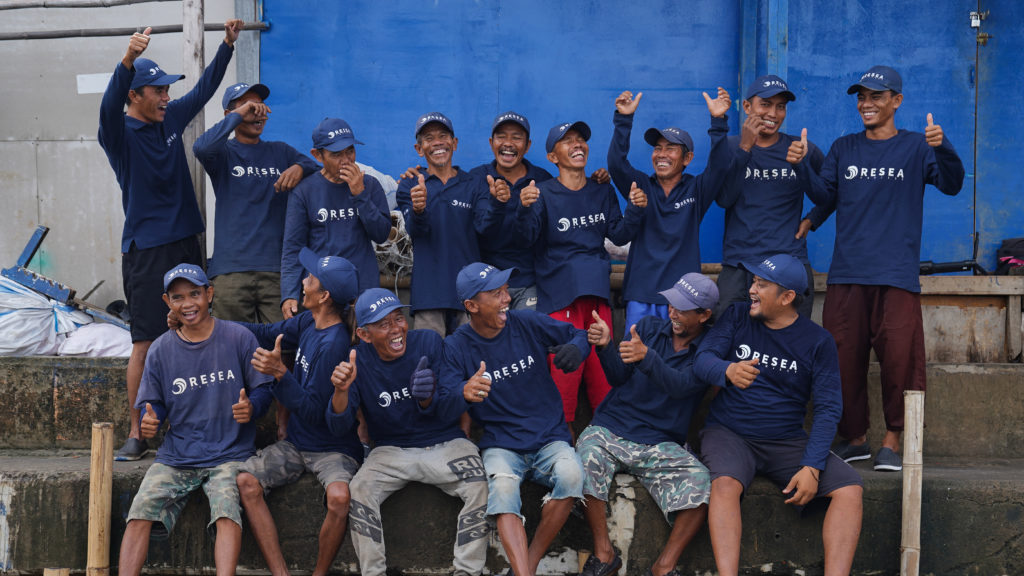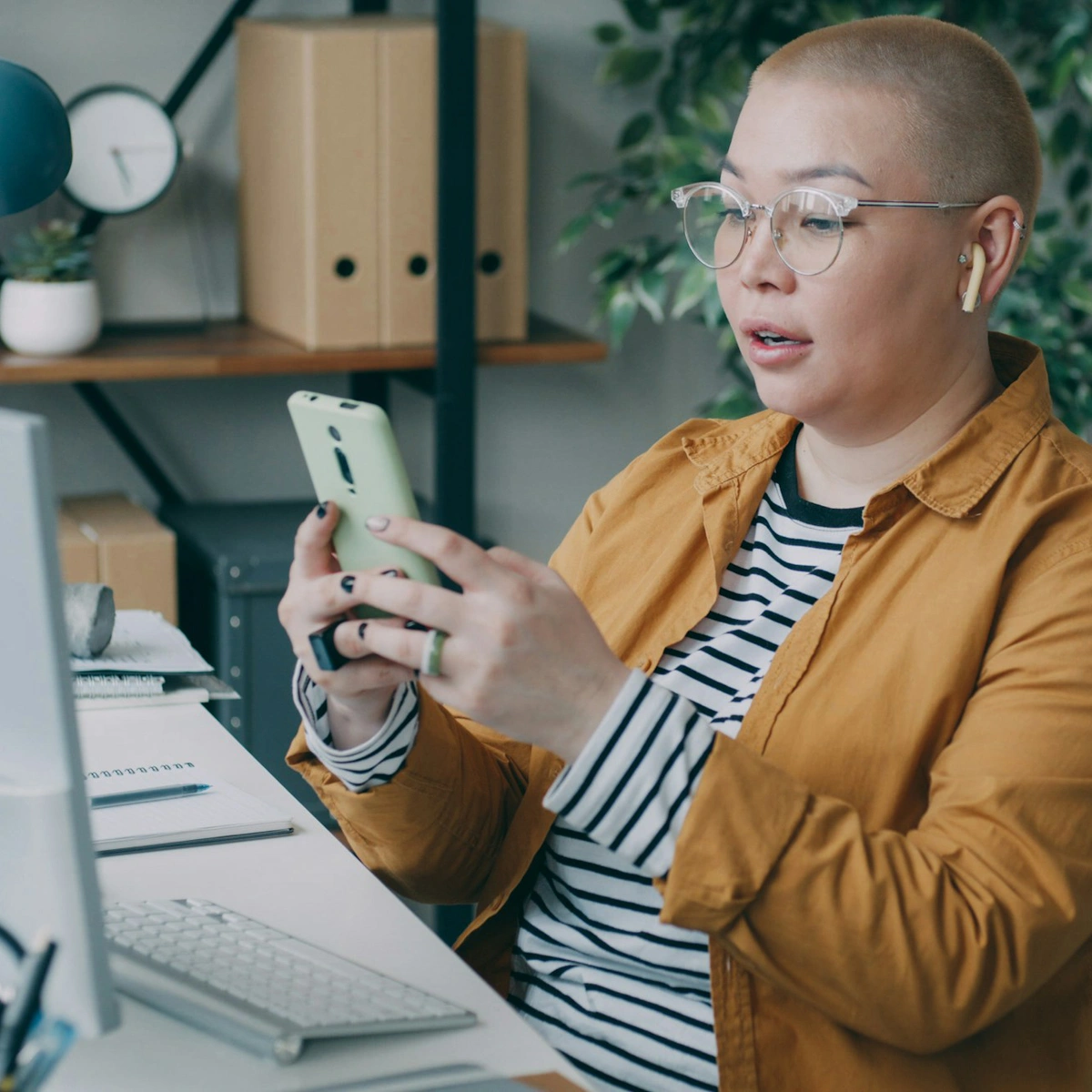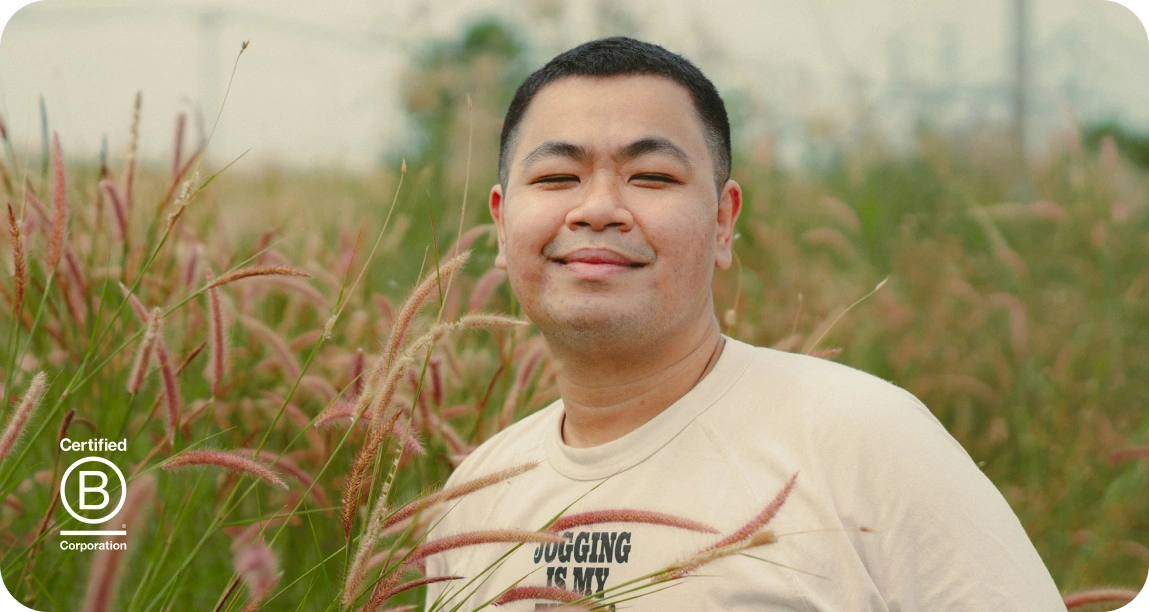A free training program for training CS reps with the skills, tools, and knowledge to delight customers and resolve issues.
Kenny Louring is the Marketing Manager at ReSea Project. He looks after all the marketing, communication, and commercial activities at ReaSea, an organization at the forefront of fighting plastic pollution. Their cleanup solution is community-driven. Meaning that they employ people in local communities to recover plastic waste polluting oceans and rivers. Their impact is solely dependent on businesses joining the movement. As the movement grows, so does the impact. Their ambition is to spread their solution throughout the world, to places with inadequate waste management and poverty, to restore and protect the heart of our planet.
But without further ado, let's dive into the interview and hear the story directly from Kenny.
https://youtu.be/adOhDCIKLHk
Kenny, tell us more about your journey
I've been on board since the very beginning. Me myself, and our small team. We're nowhere near being marine biologists or engineers or anything like that. We are a group of passionate people who have a sincere concern for the state of our oceans.
Everyone acknowledged that there's a problem. There's a lot of attention to the problem of plastic pollution and the state of our oceans.
But in our opinion, not enough has been done. Developed countries consume too much packaging while emerging economies lack the right waste management systems to avoid plastic from ending in waterways.
First of all, to grasp upon this problem, we need to reduce our plastic use. We must prevent waste at the source and we need to clean up what's already found its way into the oceans.
What is the issue ReSea is solving?
With ReSea project we wanted to take immediate action against ocean plastic pollution. Our idea seemed to be a commercial problem. So, why not solve it with a commercial solution? On one hand, there's the cleanup side of it, our operations, and on the other hand, there's the commercial side of what we do.
Regarding the operations, ReSea Project is a community-driven solution. This means that we establish our cleanup ecosystem in coastal and riverside areas, often characterized with a major negative impact in terms of waste mismanagement, but also in low-income areas. At the moment we are established in Indonesia, which is sadly the second largest contributor to plastic pollution.
It's estimated that around 15% of the annual leakage into the oceans comes from Indonesia alone. There's a huge problem there.
While the commercial side concerns private investments and foreign companies taking action. This provides local communities the means to tackle the problem.
A Smarter Way to Build Your Global Team
What are the benefits of your solution?

The benefits are multiple.
- The project helps to re-establish our ecosystem.
- We employ people from local communities, very often local fishermen, who have a hard time catching fish due to plastic pollution. This way we help support their income, by cleaning up rivers and coastal waters from plastic waste.
- We are not dependent on any technological solution. By employing local communities, we are able to support their income, improve their living conditions for them and their families and create economic growth.
- The plastic we recover is utilized to reduce the amount of new plastic in the world. We support the circular economy by delivering the plastic we recover to local waste banks, which then distribute for recycling or waste handling purposes.
- Our presence in the local communities helps to raise awareness. Our cleanup team and their families get a whole new point of view on how to deal with plastic pollution.
- Awareness includes also how individuals, businesses out there governments can be part of the solution. Through our social channels, we really hope to inspire those three entities to take action.
- Our solution is fully scalable: the more businesses are supporting and are part of our cleanup efforts, the more people we can employ and expand our operations to new geographical locations.
What are the next steps for ReSea?
We've only been operating full time since 2020, since then, we've really progressed a lot and we have managed to cover Greater Jakarta and some of the most polluted rivers in Indonesia. For the time being, we need to maintain that kind of quality control we have in that area.
The next step for ReSea Project is to look abroad and at the rest of Indonesia. Hopefully, we're able to expand all over the world. That would be a dream coming true.
While for the commercial side of ReSea Project, we create the incentive for businesses to be part of the solution.
Consumers demand increasingly that the brands they support, are taking a larger responsibility and support primarily organizations who are making social and environmental impact.
Businesses can be part of ReSea Project by giving their products or services immediate impact: by attaching the removal of an amount of plastic to their products, every time a customer buys them. This way, their customers can be part of tackling ocean plastic pollution.
We really seek to help our customers to leverage their sustainability commitments, and to get recognition for the huge difference they make by being part of ReSea Project. Regardless if they're responsible for removing 500 kilos of plastic out of the oceans and rivers or thousands of tons of plastic.
This is a great way for companies to kickstart their own green transition, or to consider their existing internal environmental activities and take them to the next level, by doing something that goes beyond their core activities.
ReSea is a young organization but you guys have done a great journey already. What are the main learnings? Any recommendations for organizations like yours willing to make an impact in the world?
Back then we were just two or 3 people discussing this. And the next moment we were on a plane headed to Indonesia to really see for ourselves. That was really an eye-opener.
If you see the amount of plastic down there, you get a clear vision of how much you really want to make a difference. But of course, even though we believed in ourselves it didn't necessarily mean that companies believed in us.
In the beginning, larger companies thought that we were not mature enough. It took us a lot more to persuade them to support our mission and with a good reason.
There is a lot of focus lately on environmental topics, but many false claims have been out there. Many companies are professing that they are doing good things for the environment, or even collecting plastic out of the ocean. But that's not true.
Yes and how can we solve that?
It becomes clear why documentation and transparency is the most critical thing that you should focus on as a startup. After only a few months, we figured out that if we wanted to succeed and build this huge movement, we had to be fully transparent and be able to trace all our activities.
You need to prove your impact to your stakeholders, whether they are business-to-business or consumers.
The global quality assurance company called DNV, has certified our activities at the beginning of this year. We were the second organization in the world to get this certification, meaning that we have the highest level of traceability.
This means that we can track down our process: from when we find the plastic waste or the plastic patches in the oceans or rivers, and then document every step of the journey, until the delivery at the local waste bank.
That requires some funding as well, and not all startups have them. My advice, in this case, would be to do as much as you can to tell the good story and be fully open about it.
Startups should not be scared that their product or solution will be flawless or not. There are a ton of mistakes you have made already, but at least be fully transparent about your ambitions to do good. If you're able to create a group of supporters, the rest will come eventually.
Are you looking into expanding your team in the near future?
We're still a small team. And of course, as a startup, it's always a matter of resources and where to put them.
It's definitely something we're looking into. During the pandemic crisis, we've learned a lot about remote meetings and how to operate in two different parts of the world. Indonesia is so different from Denmark. We have cultural barriers and all sorts of things to take care of, to make sure that everything is running smoothly.
We're fortunate enough to have local operation managers. But now we are looking into how we can build our awareness and create a strong brand all over the world, especially on the commercial side. We need all hands on deck, and we'd really love to provide support to as many companies as possible. Our solution is scalable, so its growth potential is really high.
What are the traits you're looking for when you're in the process of hiring a new collaborator?
It means a lot for us to have people with the right skillset. But I would never look into having the number one marketer in the world. I would rather look into the personal skills and the social skills, and then look for people with the same passion for this project and the topic, that the rest of the team has.
Undoubtedly, I would look for people who are eager to learn and execute things. People who can bring good ideas to the table and are not afraid to challenge me or anyone else. If they come up with good ideas, we would test them, see how they go, and learn from the results.
I would say that the human aspects, the human qualities, and passionate people are the most important things for me.
Another important aspect to consider is remote work. As I mentioned earlier, we deal with a lot of different cultures. We want ReSea Project to be a global brand. That requires talents from other countries, as they have a far better understanding of how to enter a certain market.
Of course, I have a pretty decent understanding of how Western and Asian Pacific countries react to different marketing activities. But we need people actually living in those countries, who are able to open the door for us and help to take ReSea Project to the next level.

One last message for our community of changemakers...
I can definitely encourage everyone who's reading, to follow ReSea Project and give your best support to this cleanup mission were on. There are so many ways you can help: by liking, commenting, and following us on social media, and sharing the message with all organizations out there.
We are aware that we are not THE solution to tackle climate change or ocean plastic pollution, but we are one of many great initiatives. And our best encouragement goes to all the startups that are working with sustainability. Let's keep pushing the agenda because it definitely inspires others to do better for the planet.
Change starts with you. We all have a big role to play in this, and we're definitely optimistic about the future, even though we hear a lot of bad things about the state of our oceans. It's so important to walk the talk and get on board, for the people and the planet.
Work for Impact supports brands and organizations for a better world
If you want to learn more stories from startups in the impact space, check the series: Work for Impact Meets.
We believe in setting goals that benefit everyone, not just ourselves. By working with socially and environmentally responsible organizations and nonprofits, we want to promote projects that have a positive impact on the world as a whole. At Work for Impact, a job is not just a job. It is the beginning of a larger journey that will unlock future potential and provide meaningful opportunities worldwide. If youd like to know more about us and how we can make an impact together, let's meet for a quick chat.



